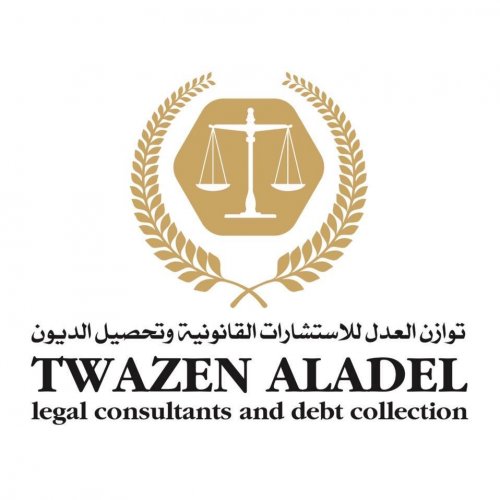Best Faith-Based Law Lawyers in Dubai
Share your needs with us, get contacted by law firms.
Free. Takes 2 min.
List of the best lawyers in Dubai, United Arab Emirates

About Faith-Based Law in Dubai, United Arab Emirates
Faith-Based Law in Dubai, United Arab Emirates, primarily revolves around the application of Islamic Sharia law, which governs many aspects of personal and family life. This includes matters such as marriage, divorce, inheritance, and custody, which are typically adjudicated by the Sharia courts. While Dubai is a cosmopolitan city with a diverse population, the local legal system deeply respects and integrates Sharia principles, particularly when it comes to family law issues. Understanding these laws is important for residents and expatriates who may find themselves interacting with the legal system.
Why You May Need a Lawyer
There are several scenarios where you might require the assistance of a lawyer specializing in Faith-Based Law in Dubai:
- Marriage and Divorce: Navigating the legal requirements for marriage or divorce, especially if one or both parties are Muslim.
- Inheritance Disputes: Legal representation might be necessary to resolve disputes over the distribution of an estate according to Sharia principles.
- Wills and Estate Planning: Ensuring that your will is in compliance with both UAE law and Sharia law.
- Child Custody and Guardianship: Understanding custody laws, which can differ significantly from those in Western countries.
- Property Ownership: For those with real estate interests, understanding how Faith-Based Law affects ownership rights.
Local Laws Overview
Dubai's legal system is a combination of civil law and Sharia law. Here are key aspects relevant to Faith-Based Law:
- Marriage: A marriage contract is required, and specific requirements must be met according to religion, especially for Muslims.
- Divorce: Both parties must follow a legal process that complies with Sharia, with considerations for financial settlements and custody.
- Inheritance: Sharia principles guide the distribution of assets, often differing from Western inheritance laws.
- Wills and Testaments: Non-Muslims may opt for either Sharia-compliant wills or expatriate wills that can be registered at the Dubai Courts or DIFC Courts Wills Service Center.
- Family Matters: Custody issues rely heavily on what's in the best interest of the child, aligning with Sharia guidelines.
Frequently Asked Questions
1. Can non-Muslims choose English law in Dubai for personal matters?
Yes, non-Muslims can elect to have their wills and estates handled under their home country's law, but it must be specified clearly in their will.
2. Are there specific courts for solving Faith-Based legal matters in Dubai?
Yes, the Sharia courts in Dubai primarily solve family and personal status cases followed by Muslim citizens and residents.
3. How does the UAE's personal status law affect expatriates?
Expatriates may be subject to the personal status laws of their home country or Sharia law, depending on their specific legal arrangements.
4. Is it necessary to hire a lawyer for drafting a will in Dubai?
While it's not mandatory, hiring a lawyer is highly advisable to ensure your will complies with both Dubai and Sharia law requirements.
5. What’s the importance of prenuptial agreements in Dubai?
Prenuptial agreements can help define asset division and obligations according to the couple’s choices while considering Sharia law.
6. How are child custody cases usually decided in Dubai?
The courts decide based on the best interests of the child, with consideration of age and the ability of each parent to provide proper care.
7. Can inheritance disputes bypass Sharia law?
For Muslims, inheritance issues must comply with Sharia unless the decedent was a non-Muslim with registered documents outlining different wishes.
8. How can one annul a marriage under Sharia Law?
Annulling a marriage requires a legal process through the Sharia courts, often necessitating proof of reasons like misrepresentation or inability to consummate.
9. Is mediation available for family disputes?
Yes, mediation is encouraged and often facilitated by legal experts as a way to resolve disputes amicably and in accordance with Sharia principles.
10. What role do legal consultants play in family disputes?
Legal consultants can provide essential guidance, helping to navigate the legal system and protect personal interests while adhering to Faith-Based Law.
Additional Resources
Here are some resources you may find helpful:
- Dubai Courts: Offers official guidance and services for personal status issues.
- Department of Islamic Affairs and Charitable Activities: Provides resources on Faith-Based legal practices and queries.
- Legal Aid Dubai: Offers pro bono legal services which may be relevant for faith-based issues.
Next Steps
If you require legal assistance in Faith-Based Law, consider these steps:
- Identify the specific legal area you need help with and seek a lawyer specializing in that domain.
- Consult with legal professionals or organizations well-versed in Sharia and local laws.
- Prepare necessary documentation to facilitate your legal consultation.
- Be open about your situation, providing all necessary details so the lawyer can offer comprehensive advice.
Securing experienced legal counsel can make navigating the complexities of Faith-Based Law in Dubai more manageable and provide you with invaluable support and peace of mind.
Lawzana helps you find the best lawyers and law firms in Dubai through a curated and pre-screened list of qualified legal professionals. Our platform offers rankings and detailed profiles of attorneys and law firms, allowing you to compare based on practice areas, including Faith-Based Law, experience, and client feedback.
Each profile includes a description of the firm's areas of practice, client reviews, team members and partners, year of establishment, spoken languages, office locations, contact information, social media presence, and any published articles or resources. Most firms on our platform speak English and are experienced in both local and international legal matters.
Get a quote from top-rated law firms in Dubai, United Arab Emirates — quickly, securely, and without unnecessary hassle.
Disclaimer:
The information provided on this page is for general informational purposes only and does not constitute legal advice. While we strive to ensure the accuracy and relevance of the content, legal information may change over time, and interpretations of the law can vary. You should always consult with a qualified legal professional for advice specific to your situation.
We disclaim all liability for actions taken or not taken based on the content of this page. If you believe any information is incorrect or outdated, please contact us, and we will review and update it where appropriate.
















